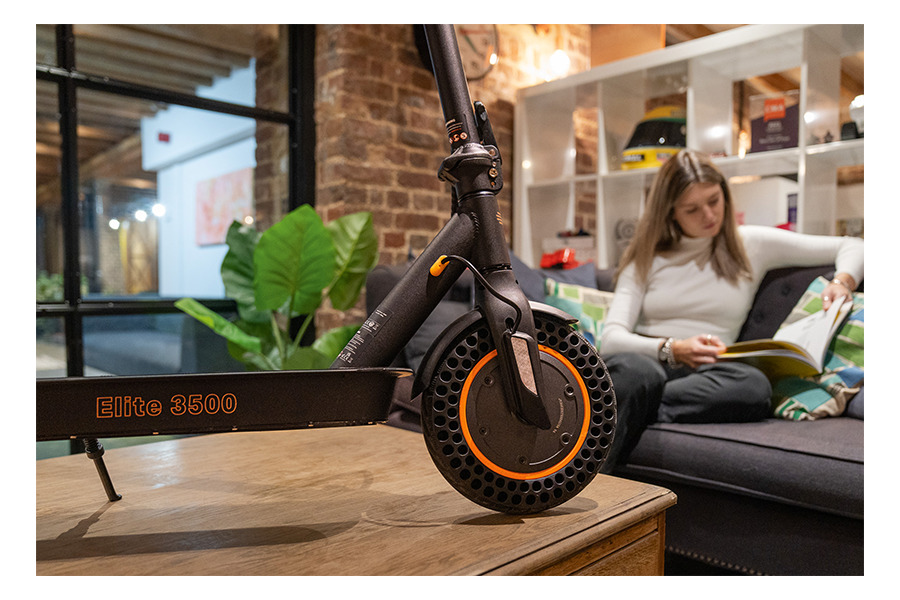I’ve recently returned to two wheels after a couple of significant set-backs. I went too hard at exercise in the hour’s freedom during lockdown and tore the cartilage in my hip. Recovering and back in the saddle, I was then scraped along the length of a double decker bus after the driver performed an irresponsible overtake – to the horror of onlooking passengers.
I became nervous at junctions, knowing that waiting cars and buses would be impatient as I struggled to peddle away quickly enough.
Electric bikes changed all that. Their instant acceleration quickly frees you from the vehicular tangle behind you and you feel safer. I no longer feel inconvenient to bigger road users (not that I should have to). And if anyone is driving badly, it’s easier to dodge them.
How ebikes work
The ebike’s motor provides electric assistance while you are pedalling – so you can quickly accelerate with less effort. And they continue providing as much assistance as you want (many models let you choose the power level) for cycling up to 15.5mph. Above that, you’re on your own – the power assistance legally has to cut out (see here for all the legal rules) – so it still counts as exercise!
Buying an ebike
You can expect to spend upwards of £800 with high-end models costing thousands. My current go-to models are from estarli, a UK brand. The e20 is a folding ebike and costs around £1,300; the bigger-wheeled e28 is £1,550. (You can read my full review of the e28 here).
It’s a lot of money but you can buy through cycle2work schemes (where you get tax relief on the cost) or even pay with services such as Klarna to spread the price interest-free.
Ebike rental in London
To get a taste of ebikes in London, try one of the instant rental companies. These bikes tend to be heavier and may not have all the electric bells and whistles (such as power levels). Options include:
- Santander docks now offer ebikes
- You can rent ebikes from Lime through the Uber app
- Other options include https://www.tier.app/en/, https://ridedott.com/ and https://www.humanforest.co.uk/.

The future: electric scooters
Electric scooters are a lighter weight and sometimes cheaper alternative to a bike – and they do all the work. Currently, privately owned scooters are only legal on private land with the owner’s permission – you can’t use them on the road (full legal position here.)
However, the Government has said it will bring forward legislation before the spring and this should make them legal, subject to similar safety rules as ebikes, such as the 15.5mph speed limit on roads.
As part of this legalisation move, there have been trials of rental scooter companies in London and other cities. So if you see someone riding one, they aren’t necessarily breaking the law (although TfL bans them on its buses and trains).
You can currently hire escooters from Dott, Lime and Tier in 10 boroughs: Camden, City of London, Ealing, Hammersmith & Fulham, Kensington & Chelsea, Lambeth, Richmond, Southwark, Tower Hamlets and Westminster.
Buying an escooter
Lighter than bikes with fewer parts, scooters are the cheaper option but can still set you back anything from £200 to over £1,000. They are great fun off road (try this Jeep review).
The future
The Government has said it will allow scooters on to UK roads by spring – not a promise but I’m hopeful. I believe the speed limit should increase from 15.5mph to 20mph to be evenly matched with the pace of cars and bigger vehicles – but let’s see. TfL needs to relax its rules, too, for mixed-mode commuters.
If you want to join the emobility revolution, you can use the code ELECTRO5 to get 5 per cent off at electroheads.